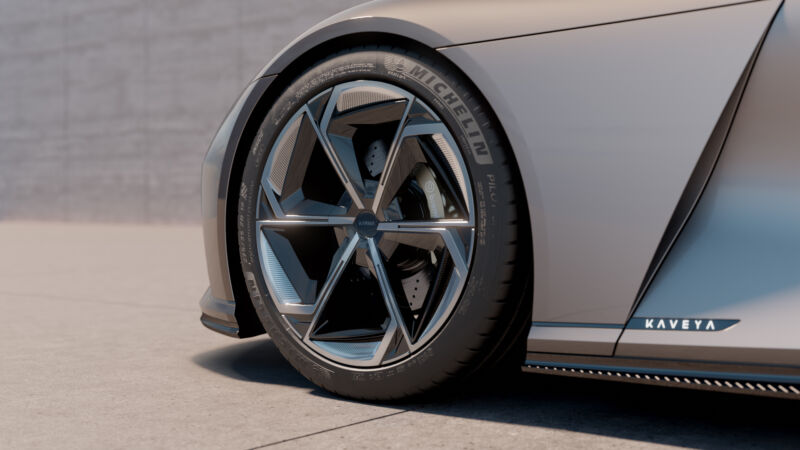throw out the black boxes —
They will also offer the architecture to other tier 1s and OEMs.

Enlarge / Karma was started in 2014 when the Wanxiang Group purchased the assets of the then-recently defunct Fisker (a different incarnation of the Fisker than just recently went bankrupt).
Karma
Intel is partnering with Karma Automotive to develop an all-new computing platform for vehicles. The new software-defined vehicle architecture should first appear in a high-end electric coupe from Karma in 2026. But the partners have bigger plans for this architecture, with talk of open standards and working with other automakers also looking to make the leap into the software-defined future.
One function per box
Electronics started showing up in vehicles in the 1970s, beginning originally with a little black box called an engine control unit. Soon, more black boxes started appearing, each with a discrete function. Some of these govern vehicle dynamics, like traction control, anti-lock brakes, stability control, and so on. Some take care of vehicle comfort—the air conditioning or electric windows, for example. And more powerful black boxes enable the infotainment system or any advanced driver assistance systems.
In a modern car, there can be more than two hundred discrete control units, each adding weight not just from itself but also from the copper cabling that connects it to the rest of the car's electronic network.
For a legacy OEM used to iterating a previous platform into its successor, carrying over this piecemeal approach to building a car's brains and digital nervous system works. But for clean-sheet designs, there's a more elegant and efficient way to do things.
What’s a software-defined vehicle?
Instead of all those individual black boxes, each with a single job, the new approach is to consolidate the car's various functions into domains, with each domain being controlled by a relatively powerful car computer. These will be linked via Ethernet, usually with a master domain controller overseeing the entire network.
We're already starting to see vehicles designed with this approach; the McLaren Artura, Audi Q6 e-tron, and Porsche Macan are all recent examples of software-defined vehicles. Volkswagen Group—which owns Audi and Porsche—is also investing $5 billion in Rivian specifically to develop a new software-defined vehicle architecture for future electric vehicles.
In addition to advantages in processing power and weight savings, software-defined vehicles are easier to update over-the-air, a must-have feature since Tesla changed that paradigm.
Karma and Intel say their architecture should also have other efficiency benefits. They give the example of security monitoring that remains active even when the vehicle is turned off; they move this to a low-powered device using "data center application orchestration concepts."
Intel is also contributing its power management SoC to get the most out of inverters, DC-DC converters, chargers, and as you might expect, the domain controllers use Intel silicon as well, apparently with some flavor of AI enabled.
Enlarge / The Kayeva concept.
Karma
"Together, we're harnessing the combined might of Intel's technological prowess and Karma's ultra-luxury vehicle expertise to co-develop a revolutionary software-defined vehicle architecture," said Karma President Marques McCammon. "This isn't just about realizing Karma's full potential; it's about creating a blueprint for the entire industry. We're not just building exceptional vehicles, we're paving the way for a new era of automotive innovation and offering a roadmap for those ready to make the leap."
"Karma’s commitment to crafting unforgettable experiences—where innovation meets artistry and performance blends with luxury—demonstrates how starting from a clean slate, combined with a visionary approach and the right technology partner, can redefine a software-defined vehicle," said Jack Weast, vice president and general manager of Intel Automotive.
Karma's first car to use the software-defined vehicle architecture will be the Kayeva, a $300,000 two-door with 1,000 hp (745 kW) on tap, which is scheduled to arrive in two years. But Intel and Karma want to offer the architecture to others in the industry. "For Tier 1s and OEMs not quite ready to take the leap from the old way of doing things to the new, Karma Automotive will play as an ally, helping them make that transition," said McCammon.